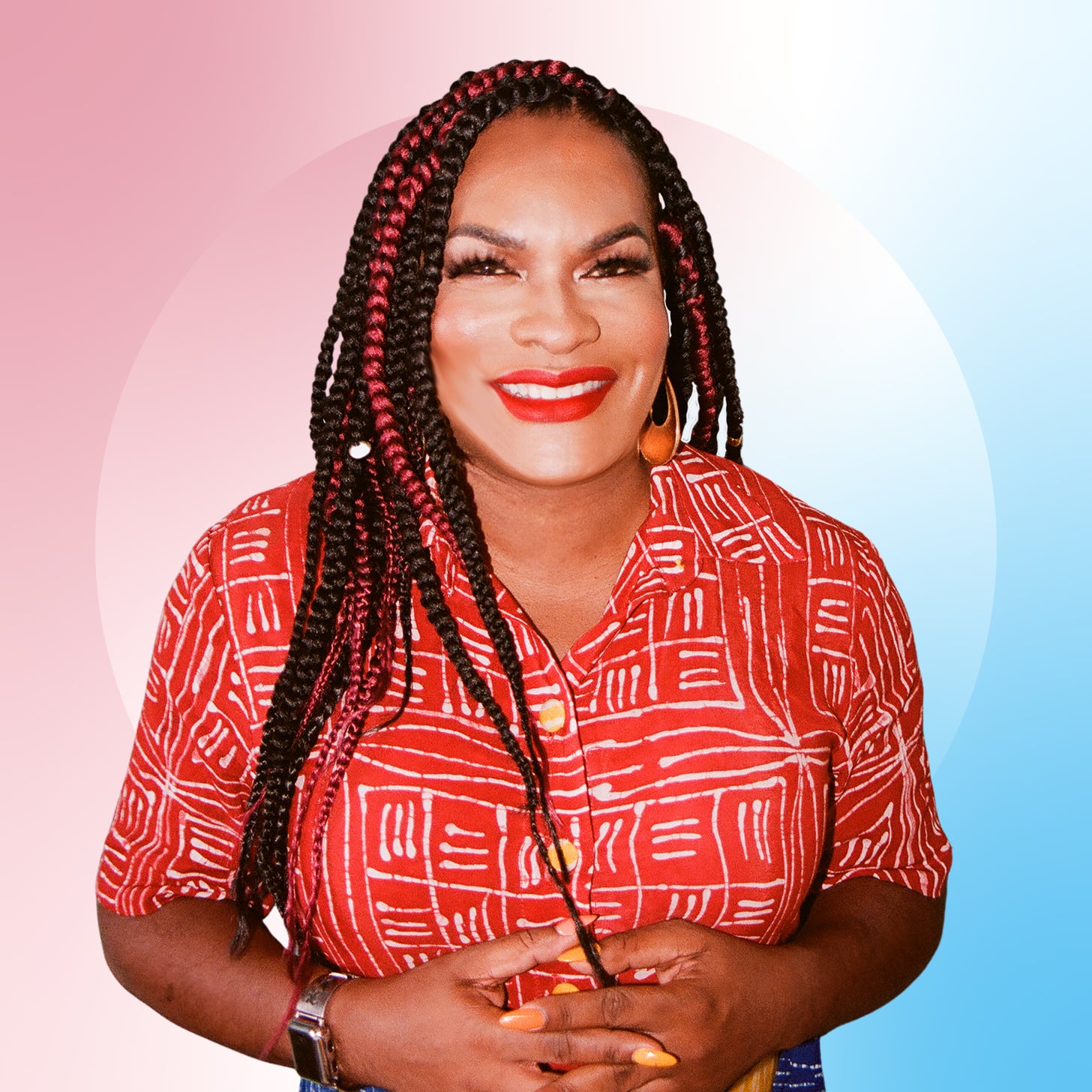Imara Jones: "Stories Are a Way to Combat Ignorance"

In 2018, award-winning journalist Imara Jones launched TransLash Media alongside releasing a docuseries about her own transition as a Black woman living in New York City. It was the height of the Trump administration, and Jones was noticing the uptick in anti-trans violence — and wanted to use storytelling as a way to educate others about trans people’s experiences.
Beyond telling stories that center on the experiences of trans folks, Jones serves on several boards — the Transgender Law Center, the LGBTQ+ Museum, to name a few — which is just another way she advocates for fellow trans and queer folks every day.
In a year that has seen unprecedented anti-trans legislation and violence, POPSUGAR is highlighting the perspectives of trans and nonbinary folks throughout Pride Month. These leaders are sharing ways they protect their joy, reminiscing on moments of gender euphoria, and suggesting how allies can support the LGBTQ+ community right now. Explore all of our coverage here, and read Jones’s story, in her own words, ahead.
Gender is something that’s strange to many kids up until the time when they get to be confronted with gender, because they’re just who they are. Even if they say, “I’m a girl, I’m a boy,” they don’t know what that means. They know what it means in terms of what other people are designating for them, but they don’t know what that actually means. I didn’t know.
For me, it was starting at 5 years old, but really by the time I reached 7, I had a really clear sense that I was not the way that the world was seeing me. I was not a boy. There was this growing disconnect between how I felt inside and how people were interacting with me. And after a certain time, that becomes more and more isolating, because as you’re moving through time, gender strengthens in society. For example, people allow girls to be tomboys until they reach a certain age. So as you’re moving along, gender is actually becoming a stronger force in your life. And for me, it became harder and harder and harder, and what I had to do was to find ways to suppress and repress myself even as I was moving through life and essentially playing at the gender people saw me as. That was really lonely.
One of the things I did for a very long time was at the end of the day, right before I went to bed, I would replay my entire day, reimagining it as if the world saw me as a girl. That was one of the ways in which I held on to my identity and gave myself a parallel childhood and puberty and adolescence. And that honestly makes it easier to be me now, because I still have reference points for my younger self, which is really powerful.
Even after you transition, it’s such a battle. But one day, I woke up — this was in the past seven years or so — I woke up and realized I wasn’t thinking about my gender. I was just like, “Oh, what do I have to do today?” I was going through the list of things that I had to do — go to the store, etc. — and usually, those things would build up anxiety. Like, how is the world going to interact with me, how was I going to interact with the world? But I’d gotten to a certain point, a certain comfort with myself and comfort with my transition, where there was a day that I woke up and I didn’t have to think about that. And it was a very powerful feeling. It took a really long time.
Source: Read Full Article
